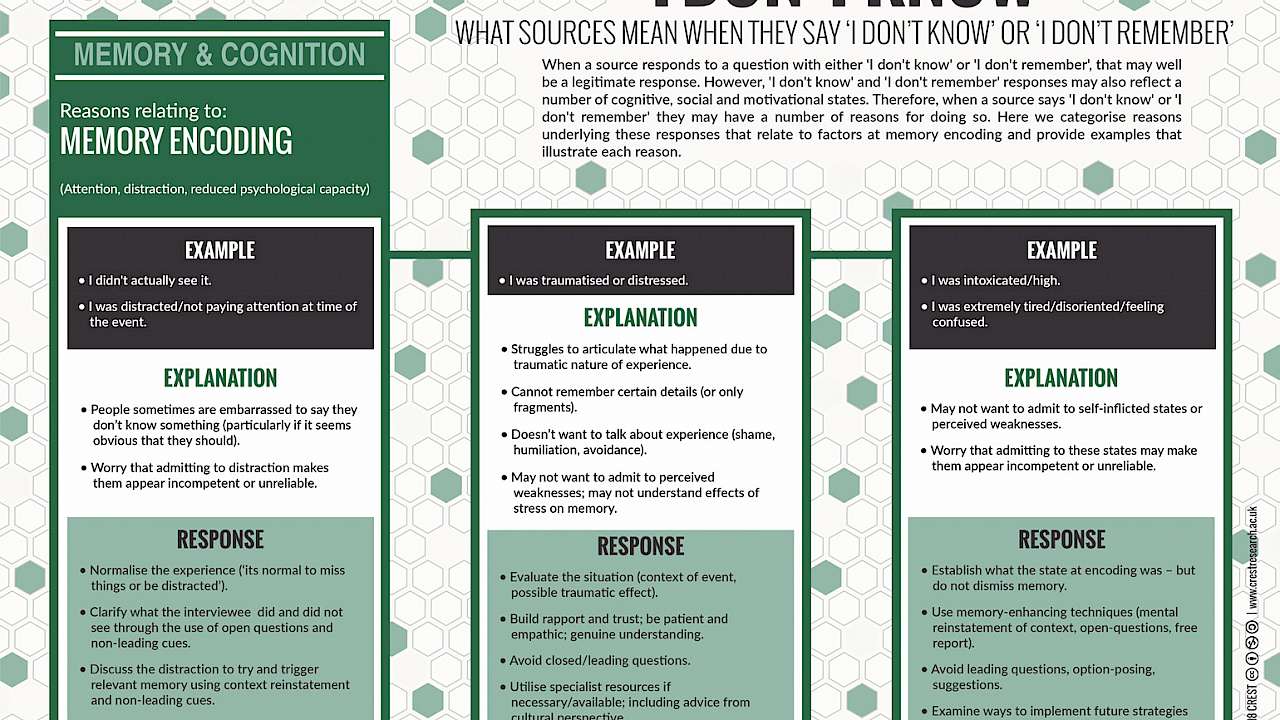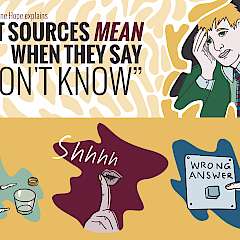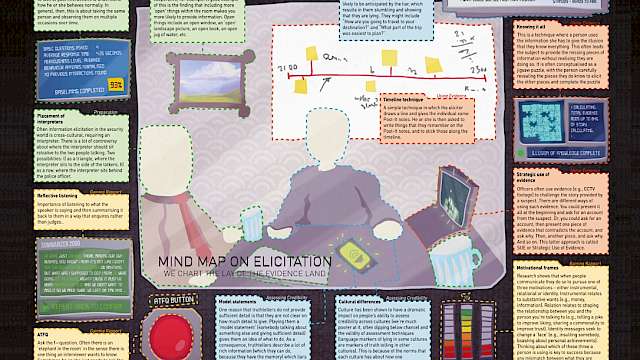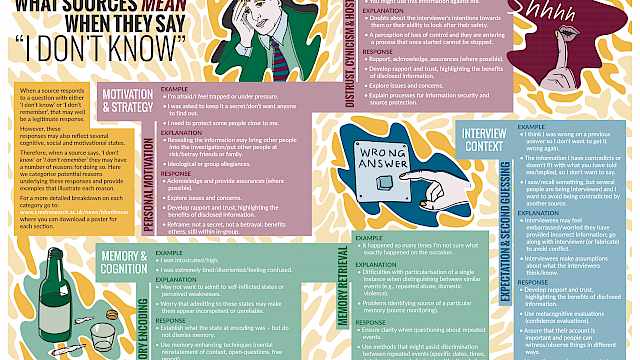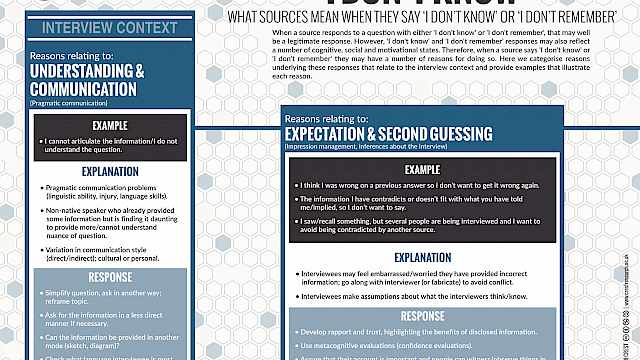During an interview a source may respond to a question with either 'I don't know' or 'I don't remember'. This may well be a legitimate response; however, these responses may also reflect several cognitive, social and motivational states. Therefore, there are many reasons why a source might respond with an 'I don't know or 'I don't remember'.
Drawing on a range of published research, Professor Lorraine Hope has developed a taxonomy of the potential reasons for the 'I don't know' response, to explore, understand and inform in interview settings.
Through a series of posters, Professor Hope provides examples that illustrate each reason along with possible responses.
This poster focuses on reasons that relate to factors at memory encoding, such as attention problems, distraction or reduced psychological capacity.
The other 5 posters look in more detail at each of the cognitive, social and motivational states:
- Overview - a summary of the many reasons why a source would say 'I don't Know' or 'I don't remember'.
- Memory Retrieval - reasons relating to memory retrieval, such as forgetting, uncertainty and metacognition, lack of retrieval support.
- Interview Context - reasons relating to interview context, such as pragmatic communication, impression management and inferences about the interview.
- Distrust, Cynicism and Hostility - reasons that relate to distrust, cynicism and hostility such as trust and control issues, perceptions of efficacy and deliberate deceit to mislead.
- Personal Motivation - reasons that relates to motivational factors such as reluctance (fear, protecting others), status insecurity and ideological motivations e.g., taboo, shame, identity as an 'informer'.
Read more
Lorraine Hope is a CREST Researcher and Professor of Applied Cognitive Psychology at the University of Portsmouth.
These posters are produced under a Creative Commons 4.0 BY-NC-SA licence. This means you are allowed to use them, with attribution, but we'd also love to know where and how you are using them so please let us know by emailing us at [email protected].
For more information on how you can use our content read our copyright page.
Copyright Information
As part of CREST’s commitment to open access research, this text is available under a Creative Commons BY-NC-SA 4.0 licence. Please refer to our Copyright page for full details.
IMAGE CREDITS: Copyright ©2024 R. Stevens / CREST (CC BY-SA 4.0)
